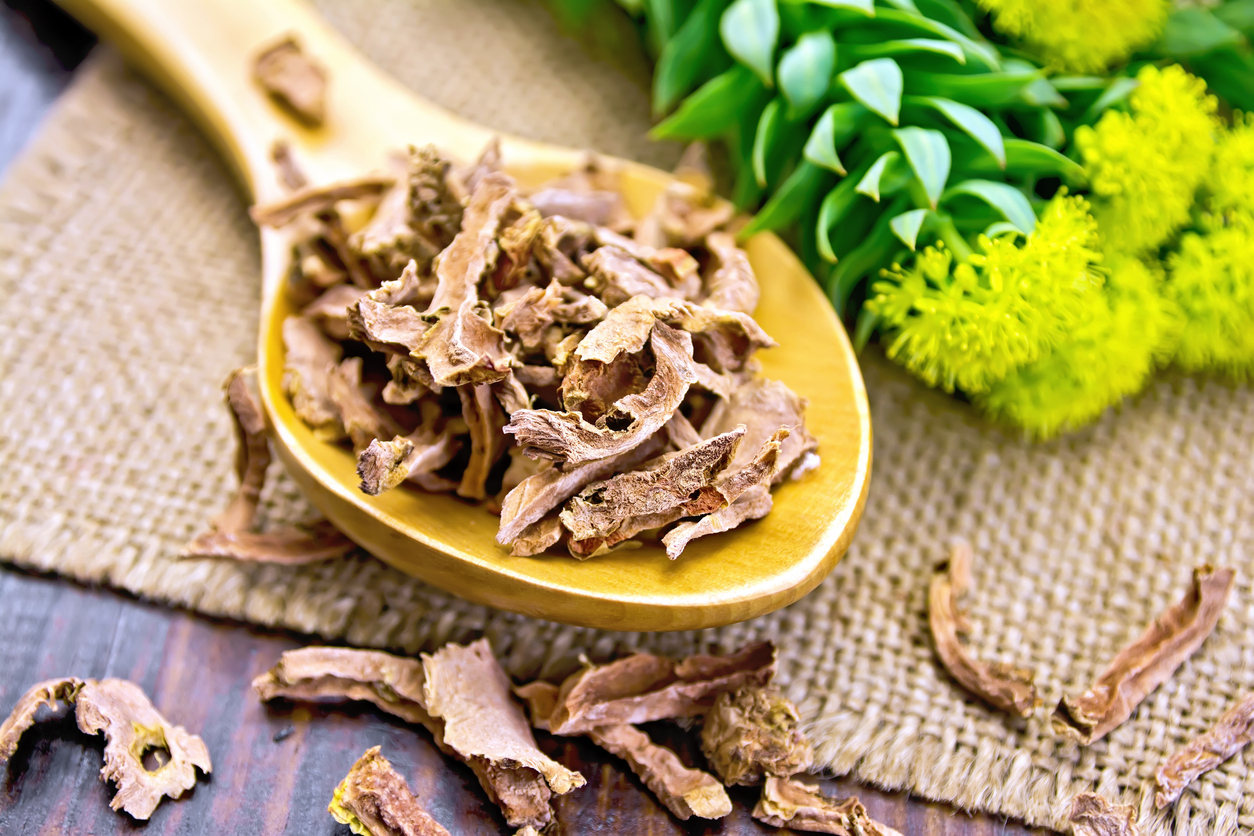Rhodiola: A Natural Adaptogen for Stress and Wellness
Rhodiola (Rhodiola rosea), often referred to as the “golden root” or “arctic root,” is a powerful adaptogenic herb known for its ability to enhance resilience to physical and mental stress. This perennial plant thrives in cold, high-altitude regions of Europe and Asia, and its roots have been used for centuries in traditional medicine to improve energy, stamina, and overall well-being.
Key Benefits of Rhodiola
- Stress Reduction:
Rhodiola is an adaptogen, meaning it helps the body adapt to stress. It balances cortisol levels, the hormone associated with the stress response, promoting a sense of calm and focus. - Improved Mental Performance:
Studies show that Rhodiola enhances cognitive function, memory, and concentration, especially during fatigue or stressful situations. - Boosts Energy and Stamina:
Rhodiola supports mitochondrial function, helping cells produce energy more efficiently. This makes it popular among athletes and those experiencing chronic fatigue. - Mood Enhancement:
Rhodiola’s influence on neurotransmitters like serotonin and dopamine can help alleviate symptoms of mild to moderate depression and anxiety. - Antioxidant Properties:
Rich in antioxidants, Rhodiola protects cells from oxidative stress, contributing to overall health and slowing the aging process.
How Rhodiola Works
Rhodiola contains active compounds such as rosavins and salidroside, which are believed to be responsible for its adaptogenic and health-promoting effects. These compounds modulate stress response pathways, enhancing the body’s ability to maintain homeostasis during challenging conditions.
Common Uses of Rhodiola
- Stress Management: To cope with high-pressure work environments or personal stressors.
- Physical Performance: To improve endurance and reduce recovery time after intense exercise.
- Mental Clarity: To boost productivity during periods of mental fatigue.
- Mood Support: As a natural aid for mild depression and anxiety.
Dosage and Safety
- Typical Dosage: 200–600 mg per day, standardized to contain 3% rosavins and 1% salidroside.
- When to Take: Often taken in the morning or early afternoon to avoid potential sleep disturbances.
- Side Effects: Rhodiola is generally well-tolerated. Rare side effects include mild dizziness, dry mouth, or gastrointestinal discomfort.
Caution: Consult a healthcare provider before using Rhodiola, especially if you are pregnant, breastfeeding, or taking medications for mood disorders.
Rhodiola in Traditional and Modern Medicine
- Traditional Use: In Siberian and Scandinavian cultures, Rhodiola was used to combat fatigue and enhance endurance.
- Modern Research: Clinical studies validate its role in stress reduction, fatigue management, and mental performance enhancement.
Where to Find Rhodiola
Rhodiola supplements are widely available in health stores and online retailers in forms such as capsules, powders, and tinctures. Ensure the product is from a reputable brand and standardized for active compounds.








Comments are closed.